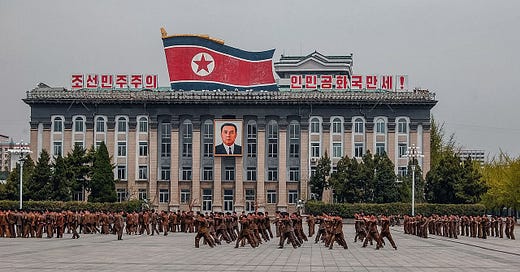NORTH KOREA'S ROOM 39: THE CRIME SYNDICATE BANKROLLING KIM JONG-UN'S SECRETS
From Fake Cash to Stolen Organs: Inside the Shadow Empire That Keeps Pyongyang in Power.
Imagine a secret vault where counterfeit dollars print like confetti. Picture a prison hospital where surgeons harvest organs from living prisoners. Envision hackers in dark rooms stealing millions with a keystroke. These aren’t scenes from a spy thriller. They’re real. They’re funded by a government. And they’re hidden inside the world’s most isolated dictatorship: North Korea.
The Kim dynasty has survived sanctions, famines, and global condemnation. But how? While its people starve, the regime flaunts nuclear missiles, luxury cars, and Swiss watches. The answer isn’t diplomacy. It’s crime. Organized, state-sponsored crime. At the heart of it all sits Room 39—a clandestine office so powerful, so ruthless, it makes the mafia look amateur.
Here’s the uncomfortable truth: North Korea’s nukes are paid for with blood money. And the world’s too distracted—or too complicit—to stop it.
Origins of Room 39: The Birth of a Criminal Dynasty
It started in the 1970s, when Kim Il-sung, the regime’s founding dictator, faced a problem. Sanctions were strangling his economy. His military ambitions were bankrupting the country. So he built a shadow economy. Not with factories or farms, but with smuggling, forgery, and lies. They called it Room 39—named after the unmarked government office where the schemes began.
At first, the operation was simple. Smuggle gold. Sell weapons to warlords. Steal foreign currency. But greed grew. By the 1980s, Room 39 had expanded into drugs. State-run factories pumped out methamphetamine, shipped to Asia and beyond in diplomatic pouches. “The regime treated it like a business,” said Kim Hyun-woo, a defector who once managed offshore accounts for Pyongyang. “Profit was all that mattered. Morality? A joke.”
By the time Kim Jong-un took power, Room 39 wasn’t just a department. It was a global syndicate. It bought loyalty with Rolexes, funded missiles with fake cash, and turned political prisoners into commodities. And no one outside Pyongyang knew how deep the rot went.




